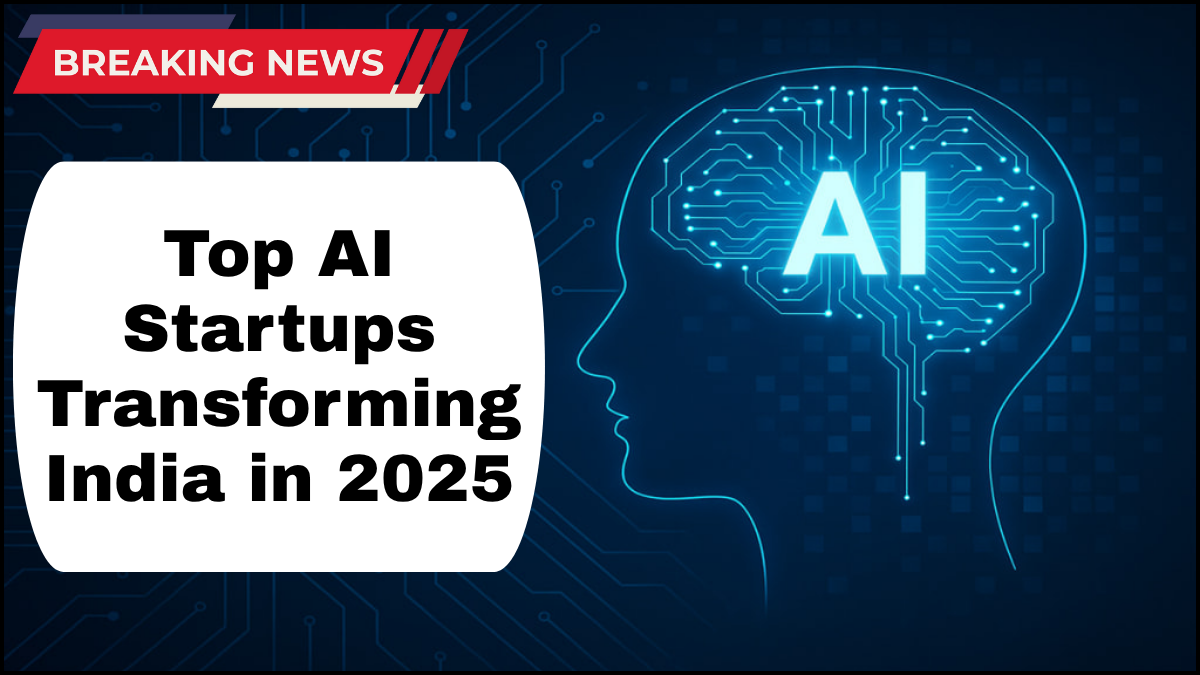India’s AI ecosystem is entering a defining era in 2025. No longer limited to theoretical research or pilot projects, AI startups in India are now delivering real-world impact across industries—from healthcare to agriculture to enterprise automation. With government backing, investor interest, and a thriving tech talent pool, India is rapidly becoming a global hub for emerging companies in artificial intelligence.

Here’s a look at the top AI startups driving transformation in India this year and how they’re shaping the future.
1. Rezo.ai – Automating Customer Experience
Rezo.ai has quickly positioned itself as a frontrunner in AI-powered customer experience automation. By blending machine learning with natural language processing (NLP), Rezo.ai enables businesses to automate support across voice, chat, and email channels.
Their AI engine learns from every interaction, offering contextual responses and reducing human workload significantly. Major enterprises in banking, telecom, and logistics use Rezo.ai to improve resolution times while cutting operational costs.
Why it matters: In a service-driven economy like India, automating customer interactions without compromising quality is a game changer.
2. Arya.ai – AI for Financial Services
Arya.ai focuses on deep learning platforms tailored for the financial sector. With tools like “VEGA” and “Braid,” the startup enables banks and insurers to build and deploy AI models at scale. These include fraud detection engines, credit scoring systems, and automated underwriting tools.
Their regulatory-compliant framework is especially attractive in a sector where compliance is critical.
Key strength: Arya.ai simplifies complex AI deployment for non-technical users, bridging the gap between data science and decision-making.
3. Niramai – AI in Healthcare Diagnostics
Bengaluru-based Niramai (Non-Invasive Risk Assessment with Machine Intelligence) is revolutionizing breast cancer detection through AI-powered thermal imaging.
Unlike traditional mammography, Niramai’s solution is radiation-free, painless, and more accessible—especially in rural India where diagnostic infrastructure is scarce.
Real-world impact: Their AI can detect tumors five years earlier than manual examination, making early intervention possible for thousands of women.
4. CropIn – AI for Smart Agriculture
Agriculture employs over half of India’s workforce. CropIn brings AI to this crucial sector by offering predictive analytics and real-time crop monitoring. Their platform integrates satellite imagery, IoT sensors, and machine learning to advise farmers on optimal sowing times, irrigation needs, and pest threats.
By helping reduce crop failure and improve yield, CropIn supports food security and rural incomes.
Who’s using it: Governments, agri-insurance firms, and NGOs across Asia and Africa.
5. Mad Street Den – Retail and Fashion Intelligence
Chennai-based Mad Street Den blends AI with computer vision to help retailers personalize shopping experiences. Their flagship product, Vue.ai, uses AI to automate everything from product tagging and catalog management to visual search and personalized styling.
Fashion giants like Macy’s and Diesel already use Vue.ai to deliver tailored experiences and increase conversion rates.
Emerging opportunity: As India’s e-commerce market booms, AI-driven personalization is no longer optional—it’s a competitive edge.
6. SigTuple – AI for Medical Imaging and Pathology
SigTuple applies artificial intelligence to digital pathology and medical imaging. Their Manthana platform can analyze blood smears, urine samples, and retinal scans to detect diseases faster and more accurately.
Hospitals and labs benefit from quicker diagnostics, reduced human error, and better patient outcomes.
Big win: SigTuple’s AI models are trained on diverse Indian datasets, making them especially reliable for local diagnostic challenges.
7. Observe.AI – Enhancing Contact Centers with AI
Observe.AI is transforming traditional call centers into AI-driven performance hubs. By analyzing 100% of customer interactions, their platform provides insights on agent performance, compliance, and customer sentiment.
Their voice intelligence engine is trained in multiple Indian languages, making them highly relevant in a multilingual market like India.
Business boost: Brands can improve customer satisfaction while reducing training costs and churn.
What Makes India a Fertile Ground for AI Startups?
Several factors have contributed to the rise of AI startups in India:
-
Government support: Initiatives like Digital India and the National AI Strategy are creating a favorable regulatory environment.
-
Skilled talent pool: With over 1 million STEM graduates every year, India is well-stocked with engineers and data scientists.
-
Cost efficiency: Building and scaling AI solutions in India is often more affordable than in Western countries.
-
Market demand: From rural diagnostics to enterprise automation, India presents diverse challenges that AI can solve at scale.
These emerging companies are not only solving local problems but also exporting AI solutions globally.
Frequently Asked Questions (FAQs)
Q1: Why is India becoming a hub for AI startups?
India offers a unique combination of tech talent, government support, and real-world challenges across sectors like agriculture, healthcare, and finance—creating ripe conditions for AI innovation.
Q2: Are Indian AI startups competing globally?
Yes. Startups like Mad Street Den, Observe.AI, and Arya.ai have clients across the US, Europe, and Asia, and are building globally competitive products.
Q3: How do AI startups in India attract funding?
Venture capitalists are increasingly investing in Indian AI ventures due to strong growth potential, low operational costs, and scalable tech solutions. Startups also benefit from accelerator programs and government grants.
Q4: Which sectors are seeing the most AI adoption in India?
Key sectors include healthcare, agriculture, fintech, retail, and enterprise automation—driven by demand for efficiency, scalability, and better customer experiences.
click here to learn more